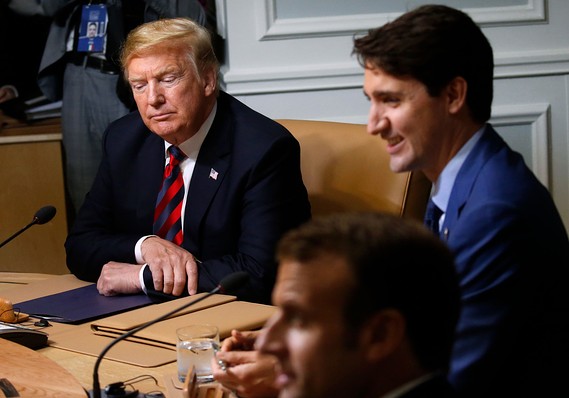 Reuters
Reuters The 25-year-old NAFTA trade deal with Mexico and Canada could stick around for a while if Democrats proceed to impeach President Trump.
The Trump administration and House Democrats have been wrangling over changes in a replacement agreement signed by the three countries one year ago, but rising odds of impeachment threaten to further delay talks or put them on hold.
House Speaker Nancy Pelosi on Tuesday gave the go-ahead for an impeachment inquiry amid the fallout from the Ukraine controversy.
Businesses groups such as the U.S. Chamber of Commerce had been hoping for a final vote on the replacement trade deal, known as the U.S. Mexico Canada Agreement, as early as next month.
The new pact includes updated terms meant to protect the American auto industry, modernize rules on technology and alter aspects of the old deal that the Trump administration saw as unfair and disadvantageous.
For their part, Democrats want tougher enforcement measures and more safeguards for labor and environmental standards. The cost of drugs is another area of concern.
Pelosi and other leading Democrats have indicated they would support a replacement for the 1994 North American Free Trade Agreement if more progress could be made on some of their demands.
Read: Trump’s Impeachment Is More Important to Washington Than Wall Street
Yet Pelosi on Tuesday suddenly threw her support behind a plan to launch an impeachment inquiry, potentially causing a rupture in those talks. She said Trump’s request that Ukraine investigate Democratic presidential candidate Joe Biden crossed the line.
Read: Pelosi announces Trump impeachment inquiry, saying ‘no one is above the law’
Trump responded by calling the actions of Pelosi and Democrats “witch hunt garbage.”
The last time a president faced an impeachment inquiry and vote in 1998-1999, virtually nothing got done in Congress during the five months the process played out.
The Republican-led House voted to begin impeachment proceedings against President Bill Clinton on Oct. 8, 1998 and voted to impeach him on Dec. 19, 1998. A Senate trial began in early January and the Democratic-controlled Senate voted to acquit Clinton a month later.
The executive branch, for its part, continued to function normally during that time. President Clinton even launched a four-day bombing campaign in Iraq just several days before the House voted to impeach him, drawing accusations that he was trying to distract from the scandal.
Some analysts suggest China could stall in trade negotiations with the U.S. to see if Trump is hurt by the political controversy, but public polling has been split on whether it would hurt the president. It’s also highly unlikely Republicans in the Senate would find the president guilty in an impeachment trial absent a smoking gun.











